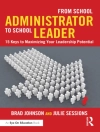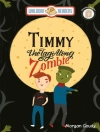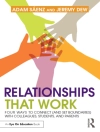′This book is special. It proposes a style of drama that liberates teachers and children from traditional dialogues…The dramas, each linked to a literacy text or wider theme, are amazing…I would recommend buying this. It challenges, but rewards with a new level of classroom dialogue′ –
Literacy Time
′This new book for teachers is timely and full of good ideas. It demonstrates the value of drama as a means of achieving education that stimulates creative and critical thinking while also engaging the emotions′ – Teaching Thinking & Creativity
Showing teachers how to use drama to promote speaking and listening for pupils, including those who find learning difficult, this book describes, analyses and teaches how to use role play effectively and looks at how to generate a productive dialogue between teachers and pupils that is both powerful and enabling. The authors present innovative methods for teaching across the curriculum which are genuinely inclusive and can help to motivate reluctant learners.
The ′how to′ section of the book describes a range of strategies and approaches:
o how to begin with ′teacher in role′
o how to begin planning drama
o how to generate quality speaking and listening
o how to use drama for inclusion and citizenship
o how to generate empathy in drama
o how to link history and drama
o how to begin using assessment of speaking and listening (and other English skills) through drama
The second section includes full lesson plans that have been tried and tested with pupils, complete with detailed guidance on how to structure the work and how to play the teacher roles. Each is linked to literacy, the wider curriculum, PSHE and citizenship.
The book is a valuable resource for primary teachers in training and in practice.
Daftar Isi
Foreword by Gavin Bolton
Introduction
Strategies/Techniques for Use in the Dramas
PART ONE: How to Approach Speaking and Listening through Drama
How to Begin with Teacher in Role
How to Begin Planning Drama
How to Generate Quality Speaking and Listening
Authentic Dialogue – teacher and pupil talk with a difference
How to use Drama for Inclusion and Citizenship
How to Generate Empathy in a Drama
How to link History and Drama
How to begin using assessment of Speaking and Listening (and other English skills) through Drama
PART TWO: The Dramas
Introduction
′The Wild Thing′ – based on ′Where the Wild Things Are′ by Maurice Sendak (ages 7-9)
′Daedalus and Icarus′ – based on the Greek Legend (7-9)
′The Snow Queen′ – based on the story by Hans Christian Andersen (7-9)
′Charlie′ – based on ′Voices in the Park′ by Anthony Browne (7-9)
′The Massai Boy′ (7-10)
′The Governor′s Child′ – based on ′The Caucasian Chalk Circle′ by Bertolt Brecht (8-11)
′The Highwayman′ – based on the poem by Alfred Noyes (9-11)
′The Victorian Street Children′ (9-11)
′The Workhouse′ (9-11)
′The Egyptians′ (9-11)
′Macbeth′ – based on the play by William Shakespeare (10-11)
′Ebenezer Scrooge′ based on A Christmas Carol by Charles Dickens (10-11)
′Christopher Boone′ – based on ′The Curious Incident of the Dog in the Night′ by Mark Haddon (10-11)
′The Dream′ – based on ′A Midsummer Night′s Dream′ by William Shakespeare












